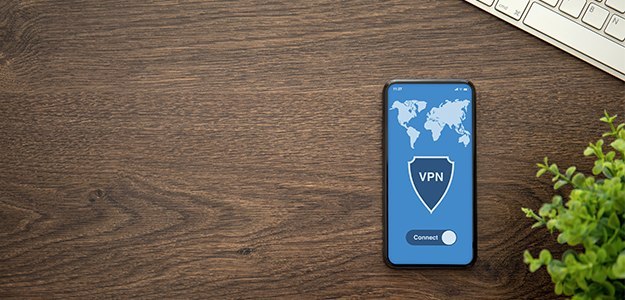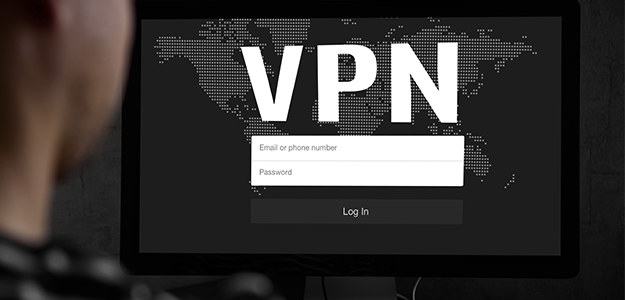When virtual private networks first appeared, they were meant to secure the connection of employees working remotely. Microsoft was the first corporation to start using them. A few protocols which VPNs utilize to secure your data are also a product of the IT giant.
Today, the service is available to a broader audience, and people take advantage of it to protect themselves when being online.
So, what is a VPN? It is a technology which creates a secure connection (tunnel) over traditional networks by encrypting users’ data and routing it through remote servers. Therefore, a reliable VPN protects users’ security and privacy.
Do You Need a VPN?
At first sight, there is nothing to worry about. If you use the Internet to stream videos or read the news only, there is no big deal when anybody sees that (if you don’t mind someone watching you though). However, if you shop online or make money transfers situation looks different. You don’t want to have your data stolen or become a victim of a hacker, do you?
That is when you need a good VPN. Whenever you use your banking information, provide contact details or whatsoever, the data gets encrypted when it enters the tunnel immediately.
And if someone wants to read it, including your ISP, all they’ll see is a flow of senseless signs. The best providers manage to do that so fast that you won’t even notice you are using a VPN.
Why People use VPNs?

Every Internet user has his or her grounds to use a VPN. One of them is the privacy mentioned above and security. A reputable service will encrypt your data. It will also mask your real IP address and assign a different one. But this is not the only reason to stick to a virtual private network.
If you’ve got a VPN, you can unblock all of them. It might sound tempting, particularly if you’re not certain whether a VPN is really necessary, but nonetheless, it never pays off in the long run. A VPN isn’t only helpful in keeping you safe. Distinct VPNs have various strengths, and so you should select your IPTV VPN carefully. A completely free VPN is apparently an attractive option for the majority of users. A free VPN will have hardly any servers and just a couple of them would work, while some would take time to connect. Most free VPNs utilize PPTP encryption.
VPNs are cheap and simple to prepare. It’s also important that you know that VPNs are rather simple applications. You may go on reading about this VPN by taking a peek at our whole VyprVPN review. Also, you are in need of a best free VPN for Kodi experience since you can access virtually all add-ons and plugins in the Earth, wherever you’re. It’s always advised to use the ideal VPN when viewing absolutely free videos on the world wide web. You ought to grab the very best Kodi VPN after you’re able to.
Just as with any other kind of software, VPNs aren’t perfect. A VPN is useful once you will need to access geo-restricted content that isn’t available in your region. Besides that, VPNs can be set up on a broad array of systems. Apart from that, there are a couple different reasons you ought to use a Kodi VPN. The very best VPN for Kodi is going to have native application for every one of these platforms making it a pleasure to use. Setting up an ideal VPN to Kodi on various platforms can be a hard task, you might require some help for setting up a VPN.
You can use a VPN to override geo-restrictions. There is much content which may be only accessed in certain countries. Using a VPN to unblock restricted content is especially convenient for people that travel and, for example, want to stream their favorite TV shows wherever they are. So, when choosing a VPN, you should check the locations of servers it has.
Another reason to use a VPN is to go around censorship. For example, if you reside in a country where the government prohibits using Facebook or YouTube, you may easily access them via the server located thousands of miles away. You won’t get caught doing that because the VPN will mask your real IP and hide your traffic.
A VPN can save you money. Different e-commerce websites, including Amazon, track your location and collect information about you. If they decide that you are likely to pay more just because you live in the US and not some third world country, they won’t waste their chance to make more money.
How to Choose a VPN Service?
Probably, there are no two VPNs that are similar. Each one of them has strengths and weaknesses. And if you have previously used the service, you might already have an idea of what to look for when choosing a provider. But if you don’t have any experience with VPNs, this is what you should consider when making a choice:
- The VPN’s jurisdiction. It is essential since all providers must follow the laws of the country where they are located. The more severe the regulations are, the more vulnerable you become. The reason is simple: your provider might be obliged to disclose your information anytime (in court, for example).
- The number of servers and their location. This criterion becomes especially vital if you travel frequently. Make sure your provider has servers in the countries you visit. The more, the better because this will allow spreading the traffic burden equally and thus, you will enjoy better speeds.
- Devices the VPN is compatible with. Pay particular attention to this criterion if you plan to use the service on your mobile device because some providers use protocols which do not work with Android and iOS.
- Price, the method of payment, and refund policy. The cost of the service from different providers may vary significantly. Also, some companies offer good deals if, for example, you go bold and buy a long-term package. The good idea is to check whether the provider is ready to return the money if you don’t like the service.
- Ease-of-use. Unless you like puzzles, you will appreciate a simple service which can be easily set up.
- Customer support. The best VPNs have comprehensive knowledge bases on their websites. But what makes them truly different is contact with their support teams. Make sure the company is using your preferred communication channels and replies quickly whenever you send them a request.


